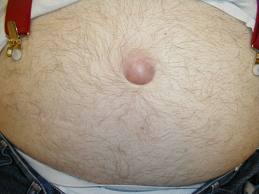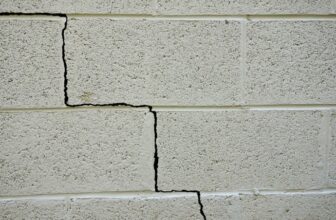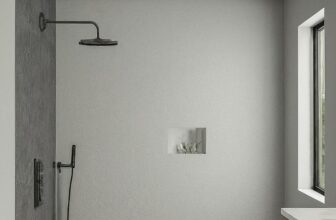
If you have been searching the Internet for more than an hour trying to diagnose a case of umbilical hernia, the flood of available medical information will only add to your anxiety. Umbilical hernia is indeed a serious cause of concern and you need to see your doctor for a proper diagnosis. But if you are like most worried patients who want a clear answer immediately, stopping the medical search frenzy might prove difficult. So here is an article that takes you through the important points of the condition. If anything sounds familiar, a trip to your medical practitioner will be the wisest move.
What is umbilical hernia?
It occurs when the intestine or fatty tissues protrude through weak stomach muscles. Some people think that these result from lifting heavy objects or vigorous exercise. While there is some truth to that, according the NIH, the real culprit is a weakened abdominal wall.
There are many types of abdominal wall hernias:
- Umbilical hernia is a very common type of hernia in both infants and adults.
- Inguinal or groin hernia is more common in men than women.
- Femoral hernia, meanwhile, occurs below the groin in the thigh area.
- Incisional hernia happens from flaws during abdominal surgery.
- Spigelian hernia develops several inches lateral to the mid-abdomen or a few inches away from your belly button.
- Obturator hernia is a very rare type of hernia in the pelvic bone or the obturator foramen.
- Epigastric hernia is characterized by a bulge between your belly button and the lower rib cage.
How do I know if I have umbilical hernia?
Look at yourself in the mirror and check for a lump in the navel. Coughing, sneezing, and movements that put internal body pressure will usually make the lump more pronounced.
A hernia does not go away by itself. They tend to grow bigger over time and can be associated with pain. You will need surgery to repair a hernia.
When you get to the doctor, he or she will do a visual check of the bulge. Umbilical hernia can be easily diagnosed by appearance. Your doctor might also apply some pressure to see if the bulge can be pushed back into the stomach or if the bulge disappears when you lie down. An x-ray, ultrasound, or CT scan will usually follow to confirm the umbilical hernia and to clear you from other medical conditions.
What happens if I do not get surgery?
Let us repeat that hernias do not heal by themselves. You only have two options: get the surgery now or wait a bit longer, and then get the hernia surgery. Should you wait?
Generally, no. There are patients who have delayed their surgery for years, but this is not advisable. The longer you wait, the weaker your abdominal wall around the hernia becomes, and the bigger your hernia will become.
Foregoing treatment also puts you at risk for a strangulated hernia where a part of the intestine or fat is trapped, leaving the tissue cut off from blood supply. This condition is dangerous and extremely painful.
What to expect at your doctor’s appointment
If you suspect a bump or a bulge near your navel, it is time to visit your doctor. Expect a physical examination of the bulge to begin when he or she presses on it and asks you to stand up to do actions that will exert pressure on your abdominal wall. A umbilical hernia usually becomes more pronounced while standing up and doing an activity like coughing or sneezing.
Umbilical hernia surgery is the treatment for belly button hernia. You can opt to have the surgery immediately, or you can delay and choose to wait and see how the condition develops. But again, do not expect the hernia to heal by itself. You will need the surgery one way or another, unless you have a more serious condition that will prevent the procedure. You put yourself at risk for serious illness and strangulated hernia if you do not proceed with umbilical hernia surgery. The hernia can strangulate when its contents (such as tissue, bowel, or fat) get trapped outside the abdomen and become damaged.
Preparing yourself for surgery
You will be happy to know that umbilical hernia surgery will only take less than an hour to finish. In fact, you might be done in twenty to thirty minutes! It is an outpatient procedure, so there is no need to stay in the hospital unless your hernia is large. You also have the option of going under general anesthesia during umbilical hernia surgery to block out pain while you stay awake during the procedure.
You need to start preparing for your umbilical hernia surgery the day prior by making arrangements on how you will get to and from the hospital. You will also have to undergo fasting for six hours before the surgery—so no food and drinks during that period.
Talk to your doctor about what method of umbilical hernia surgery is best for you. There is open surgery that will require a small cut above or below the navel to push back the hernia. There is also keyhole surgery where a laparoscope and other surgical equipment are used to repair the hernia. Both are proven and safe methods to choose from. The only difference for you is in cost and the type of scar you’ll be left with.
The umbilical hernia surgery will go quite fast and the remaining time spent at the hospital will be for you to rest and wait for the effects of the anesthetic to wear off. Once you get feeling back in your abdomen, the administration of pain relief can begin. And if all goes well, you can be sent home. Be sure to ask someone to drive for you, and take it easy for the next few days.
Jennifer Cook blogs about Umbilical Hernias because she never knew they existed until she got one. You can read more of her thoughts and research on the topic by clicking here.




